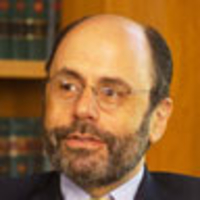
Obama is “ open to” letting terror suspects be questioned for longer periods before they’re told of Miranda rights, a top aide says. Gerald L. Shargel on the dangers of the move.
On Meet the Press this Sunday, Attorney General Eric Holder changed course once again and rearranged priorities in the Justice Department's battle against terrorism. However well intentioned, this abrupt shift in position has rattled the protective shield that envelops the Fifth Amendment right against self-incrimination.
The Supreme Court's 1966 ruling in Miranda v. Arizona has become America's new boogeyman. In the eyes of many, terrorists have us more terrified because Miranda has impeded our ability to root out the evildoers. Miranda holds that when a suspect is in custody, there should be no interrogation before that person is advised that certain constitutional rights apply, most notably that talking to the authorities is voluntary, not mandatory and that, upon request, an attorney will be provided to protect that and other rights.
Throwing this issue to the Congress will, once again, invite bitter ideological debate with the prospect of compromise putting the Miranda rule itself in harm’s way.
The right to Miranda warnings is not found in the Constitution. It is a judicial creation, designed to temper the coercive atmosphere of police custody. This prophylactic rule requires suppression of any custodial statement made before the warnings are given. So, this is the genesis of the fear: If the terrorist suspect is told (as if it were some closely guarded secret) that he does not have to talk to the authorities and that he is entitled to a lawyer, he will then clam up, refusing to "spill the beans." On the other hand, if there were no Miranda rule—or a compromised one in the case of a terrorist, the secret (known to most 8th graders) would be kept and the suspect would likely talk.
Attorney General Holder has been curiously indecisive about captured terrorists. Decisions about when and where to try these prisoners have wallowed in uncertainty for months. Now another bout of indecision threatens Miranda's very existence.
On Sunday, the attorney general announced that the Obama administration would go to Congress seeking new legislation that would relax the Miranda rule where public safety is threatened. In recent congressional testimony, Holder took a different tack by citing a 1984 Supreme Court case, New York v. Quarles, that definitively carved out a public-safety exception to the Miranda rule, allowing pre-warning questioning without time limit where the safety of the public is threatened. Although decided on dramatically different facts, it would seem that, armed with this case, the government could comfortably argue that the need to determine whether a terrorist acted alone, whether co-conspirators are at large, whether other threats are posed, whether other weapons exist, or the need to identify masterminds of the plot, all fit squarely within the Supreme Court's public-safety exception.
But even if the Justice Department now believes that it needs something more than this 26-year-old Supreme Court case to support expansion of the public safety exception (assuming that it is not now expansive enough), Congress is a ridiculously high-risk place to turn. Congressional conservatives have vigorously attacked the Miranda rule since its creation, arguing that it coddles criminals. For most Republicans, the case is a paradigm of the unchecked liberalism of the Warren Court. During this post-health-care reform, pre mid-term election moment, throwing this issue to Congress will, once again, invite bitter ideological debate with the prospect of compromise putting the Miranda rule itself in harm's way.
Nor would a statutory resolution provide a quick fix. The first time that a new and presently unpredictable statute is used to justify or enforce the constitutional validity of expanded pre- Miranda questioning, a legal challenge will be mounted that would likely take years before final resolution in the Supreme Court.
The far more prudent course for the Justice Department and for the Miranda rule itself is to avoid Congress altogether and follow the deeply rooted public-safety exception found in New York v. Quarles. That case, coupled with the present terrorist fear, leaves little wiggle room for lower federal courts to reject the public-safety exception. The Justice Department will have what it needs and Miranda will remain unmolested.
Gerald L. Shargel, a member of the New York Bar since 1969, has handled numerous high-profile cases at both the trial and appellate level. He has written written for the New York Times, the Los Angeles Times, the New York Law Journal and the online magazine Slate. Mr. Shargel, a Practitioner-in-Residence at Brooklyn Law School, recently authored a law review article published in the Fordham Law Review, "Federal Evidence Rule 608(b): Gateway to the Minefield of Witness Preparation."






